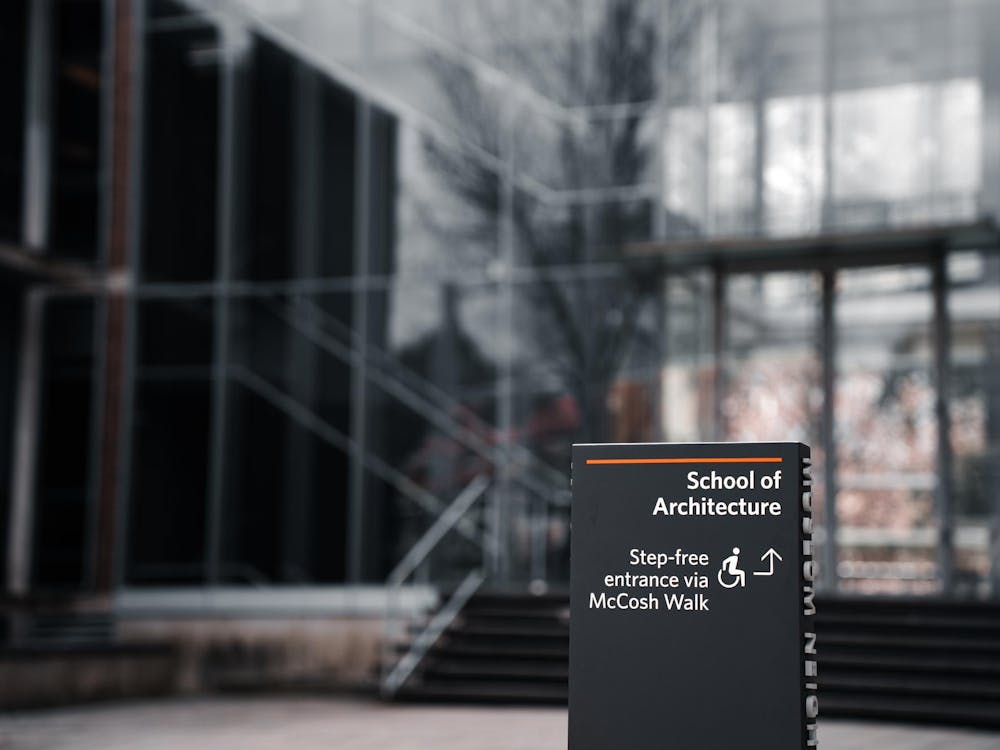Harvard University's Dean of Undergradu-ate Education Susan Pedersen announced Oct. 16 that she will request all academic departments to assess their grading policies and practices and to submit their findings to her office, a statement from the Harvard Faculty of Arts and Sciences said yesterday. This comes in the wake of a two-part Boston Globe article reporting that 91 percent of graduating seniors were awarded honors.
Last spring, Harvard's Educational Policy Committee began to reexamine the grading practices of the university, joining institutions such as Dartmouth College and Columbia and Princeton universities, which had also been investigating grade inflation.
According to Dean of the College Nancy Malkiel, Princeton had been looking at trends in grade inflation long before Harvard's spring investigation.
"We've been working on this at Princeton for the last four years," she said, adding that the University has "disseminated a lot of data to the faculty" and has also been "engaging the faculty individually" on this issue.
"The data goes back to the early 1970s . . . [and] is updated annually," Malkiel explained. She also said that the University often asks faculty members to establish written meanings for different grades to prevent confusion for students and new faculty members.
Additionally, the University publishes a guide to good grading practices, which it distributes to faculty members. Malkiel added that the University also provides reviews to individual faculty members of their own grading practices.
"[This issue] is very much center stage at Princeton," Malkiel said. "I am delighted," she said of Harvard's anti-grade-inflation initiative. "It isn't that Princeton alone has been seized by this issue," she explained, noting that she and the Princeton administration "encourage our colleagues . . . to keep this issue on the agenda."
As for all the Harvard professors who must submit their self-evaluations to the university by January, most seem to support the investigation, but are hesitant to conclude that grade inflation is a problem.

"The dean of education has now said . . . that grade inflation has taken place, but until she distributes the data, we will not know the extent of the problem, and there will be very little reaction until that happens," chairman of Harvard's government department Roderick MacFarquhar said in an e-mail.
"I personally think that if grade inflation means that it is not possible to distinguish which students have exercised their brains and put in hard work, then it is a problem and an attempt should be made to check it," MacFarquhar continued. "If, after seeing the data, the faculty consensus is that the dean is right, then I think individual departments will take whatever steps each deems appropriate to remedy the problem, with what success we shall see."
Director of Harvard's undergraduate economics department Jeffrey Williamson, shared similar sentiments. "All the evidence is not in on this," he said.
Williamson also questioned what steps Harvard could take towards reducing grade inflation that would be most beneficial. "What do you do if the evidence is really true?" he asked. "It needs authority. How do you impose restraint when you have a faculty that is used to being independent?"

However, Williamson, who has been a member of Harvard's faculty since 1983, said that there is an interest in curbing grade inflation at the university. "Our new president, Larry Summers, and others have been pressing this issue," he said. "[But], they haven't pointed the finger at [certain] departments yet."
Williamson said he believes departments in the humanities "have more of a drift" in grade distribution than departments in the social sciences, such as economics. In his own department, Williamson said, there has been no change in grade distribution for 15 years.
"Within this department, [we must ask] 'Who's getting summas, who's getting magnas, and how is it distributed?' " he explained. "When the faculty gets together in the spring [to decide which students will receive which honors], we have in our heads what is fair, what is traditional."
Williamson continued that this concept of fairness and tradition has not changed dramatically during his time at the university.
Williamson also attributed grade inflation to change in the composition of Harvard's student body. "My view is, the quality of students here at Harvard has increased immensely since the great campus wars of the late 1960s . . . more than Princeton and more than Yale," he said. "A large part of it has to do with quality." Based on that perception, Williamson explained, "Cs would disappear and As would flourish."
According to the statement from the FAS at Harvard, the EPC will review the findings submitted by the departments and then "consider further faculty-wide action." The due date for these evaluations is Jan. 2002.







